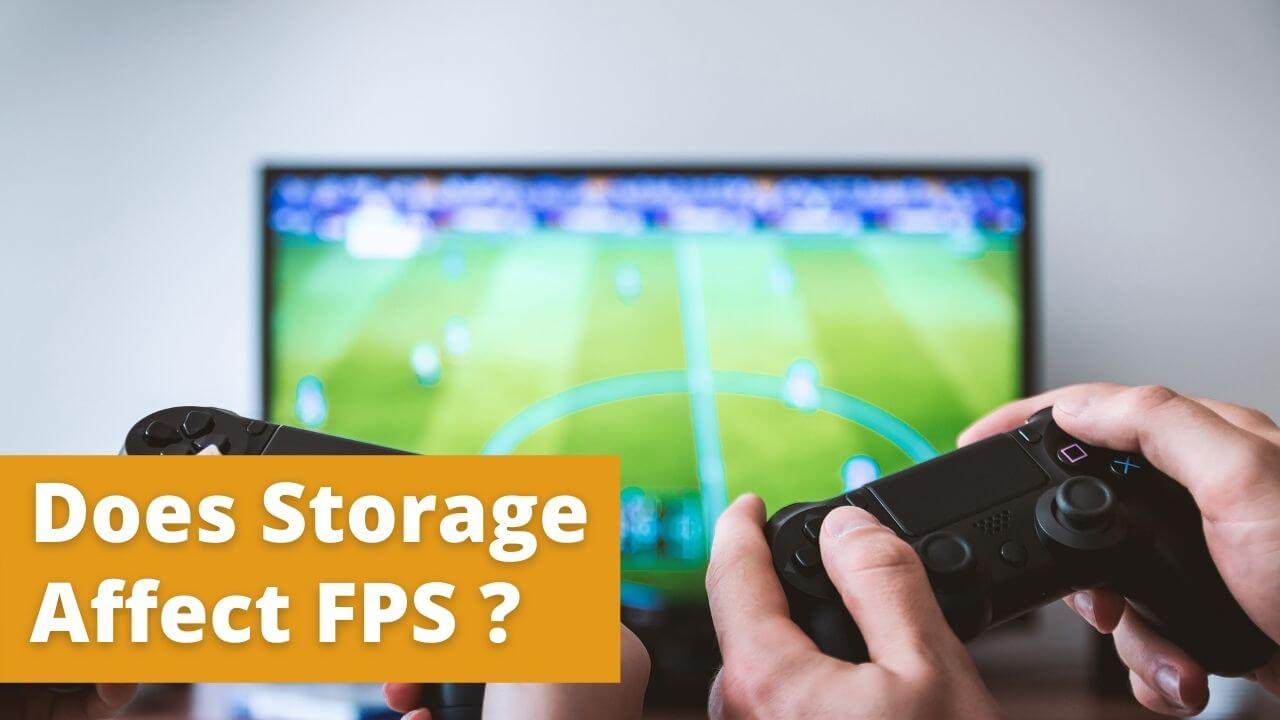A hard disk drive (also referred to as HDD) is a device that stores and also retrieves data with magnetic storage. It was invented 65 years ago, on December 24, 1954, by an IBM team led by Rey Johnson.
HDDs retain the data stored on them even when their power is off which makes them the non-volatile storage type.
However, in gaming FPS means “frame per second” and shows how many frames a graphics card or monitor can render or display each second.
This depends on the graphics card’s processing power or the monitor’s refresh rate.
Now, let’s see if your computer storage can actually FPS.
Does storage affect FPS?
Under some conditions, HDD can actually affect FPS.
If a game is fully loaded from the storage device (standalone and not web-based), then HDD can affect the rate of flow of data.
This happens a lot more in high-end PCs that are used to uber detail games. Even though a hard disk with a reasonable space gives applications more resources to work with, RAM, CPUs, and GPUs can also affect the frame per second of a game.
Skipping ahead to game performance when troubleshooting a computer system can also affect FPS. You can run a non-game benchmark to see if your computer is working normally or not.
After testing your CPU and video card and you are sure they are working perfectly, you can then install a new game and test it.
Does SSD affect FPS?
SSD also called solid-state drive is a new form of storage device used in computers. A solid-state drive speeds up computers due to their low read-access times and fast throughputs.
SSD doesn’t really have an effect on gaming performance. It only makes a difference when installing games.
This is due to a reduction in load times that happens since the transfer speed of data in SSDs is higher than that of HDDs.
SSDs can also cause hitching to be lower in games. According to Intel’s Adam Lake, Hitching is those brief pauses experienced during gameplay. This happens when the game system struggles to pull player assets from the hard drive fast enough to keep up with the player.
Does refresh rate affect FPS?
No! Refresh rate doesn’t affect FPS. It is basically the maximum FPS visible so if you are using a 60Hz monitor, you will see 60fps even if you are working towards a 60+ rate.
The monitor doesn’t affect game performance but if you are using a 144Hz monitor, you need a video card that is powerful enough to push a 144fps.
The refresh rate can also affect the maximum frame rate that is effectively displayed.
However if fps is higher than the refresh rate, all the frames a computer produces won’t be displayed. So technically, refresh rate doesn’t affect FPS but it sets a limit.
Drawing conclusions from this article, it is clear that the storage devices; HDD and SSD do not have impacts on the frame per second in a computer.

Nice Article..:)